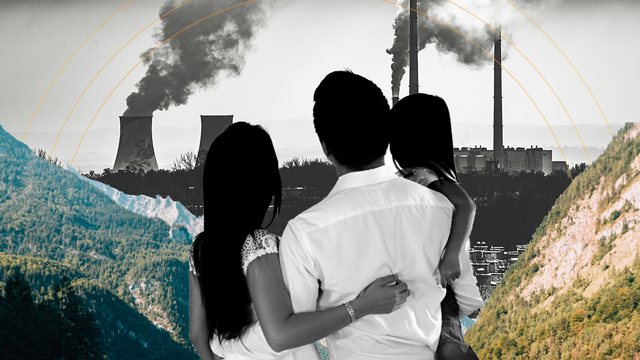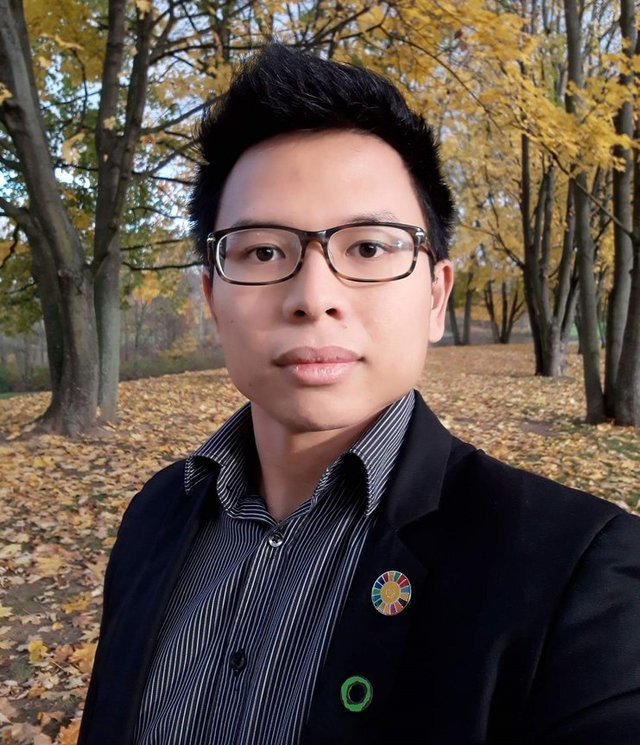

Holy Week gives us a chance to not only spend time with our loved ones, but also to reflect on our spirituality. This includes our connection to our environment.
It has been nearly four years since Pope Francis published the Laudato Si, a groundbreaking encyclical that redefined the role of spirituality in environmental action. The importance of its key messages to the Philippines, one of the largest Christian nations in the world, cannot be understated. (READ: What Pope Francis says on designing livable cities)
And yet the country remains one of the infamous faces of greed paving the way for environmental destruction.
As Pope Francis states in this document, “the gravest of all attacks on the environment are suffered by the poorest.”
At the global level, this is best exemplified by the Philippines being one of the most vulnerable to climate change, as seen with damage dealt by super typhoons, sea level rise, and droughts on agricultural production.
At the local context, we often see poor families being hit the hardest after these events, losing their homes and loved ones, and taking a long time to recover from disasters. (READ: Despite experience with typhoons, most Filipinos ‘not prepared for disasters’)
While science and faith have clashed historically, the Laudato Si changed the perception of incompatibility when Pope Francis accepts the best research available on climate change. At a time when divisions and conflicting interests prevent the world from effective collaboration, this message provides a tool for unity amongst diversity and challenges our perspectives.
When we hear the word “environment,” we always think of the natural wonders that surround us, and rightfully so. The poor state of the Philippines’ biodiversity and natural ecosystems justifies the need for even more attention on its protection and conservation, especially with added pressure from human activities and climate change.
However, what most do not realize is that the environment also includes other people and how they experience the impacts of our actions. Without appreciating this aspect of the environmental issues we are facing today and our interconnectedness with one another, we subject ourselves to a culture of indifference.
This culture is responsible for the severe plastic pollution affecting the world today, with the Philippines being the third worst ocean polluter. It is why despite the obvious destructive impacts of reclaiming large parts of the Manila Bay on the communities and ecosystems surrounding it, its proponents are still pushing for it for profit.
It is also why inequality still dominates not just the Filipino society, but other nations as well. The welfare of the most vulnerable, from farming and fishing communities to indigenous peoples and residents of small islands, are largely ignored. Meanwhile, that of environmentally destructive capitalists pursuing short-term gains continue to be favored by government policies.
Without realizing that everything is connected with one another, as emphasized in the Laudato Si, we become ignorant to just how our individual actions can make a big impact.
We are seeing this in the water and electricity supply problems that large parts of Luzon are recently experiencing. A drop of water or watt of electricity wasted may seem insignificant on a daily basis, but these unsustainable actions accumulate over time until we are once again reminded of just how valuable they are to our current lifestyle once they are gone.
The strong focus on the self makes us point fingers at every other factor except ourselves, which would not help at all in solving these problems. This is why it was initially believed by many that the current water shortage is due to the ongoing El Niño, when in fact it is due to mismanagement of resources and heightened demand, especially in Metro Manila.
Ultimately, action for the environment will need to come from all sectors of society. As everything is connected, only by whole-hearted participation of the government, businesses, civil society, and local communities can we succeed in taking care of our world. Whether we reference the Laudato Si, our national laws, or the lessons our parents taught us growing up, we all have our responsibility of caring for others.
This is why we should never discount the value of doing the “little things”. We can’t just expect somebody else to always pick up our garbage, stop wasting electricity, water, or food; we all need to make our own sacrifices in these matters, especially those with the higher means to do so. We need to educate ourselves and others that such actions are to be done not just for self-preservation, but because it is the right thing to do for others. If everybody thrives, so will you.
A change of heart and attitude can change our world. And so, this coming Holy Week and beyond, we need to reflect on how we have become accustomed to our current way of life because we assume there’s no other way. In truth, there always is. – Rappler.com
John Leo Algo is a climate science and policy advocate trained by The Climate Reality Project. He finished his MS Atmospheric Degree from the Ateneo de Manila University in December 2018. He is also a citizen journalist and public speaker.